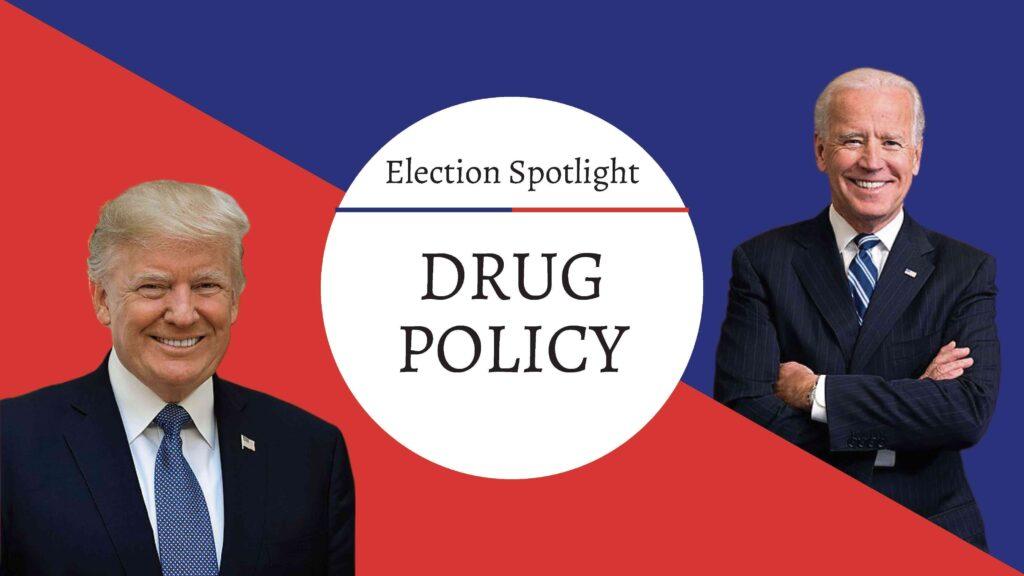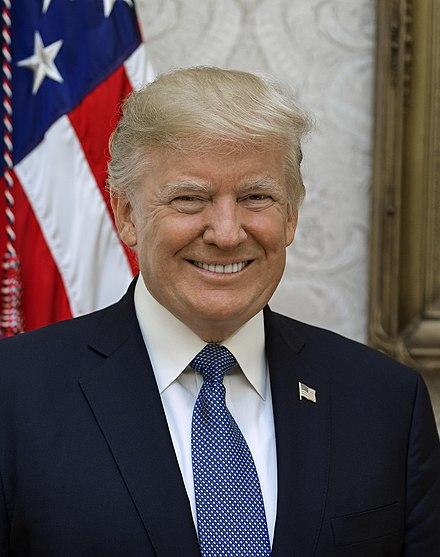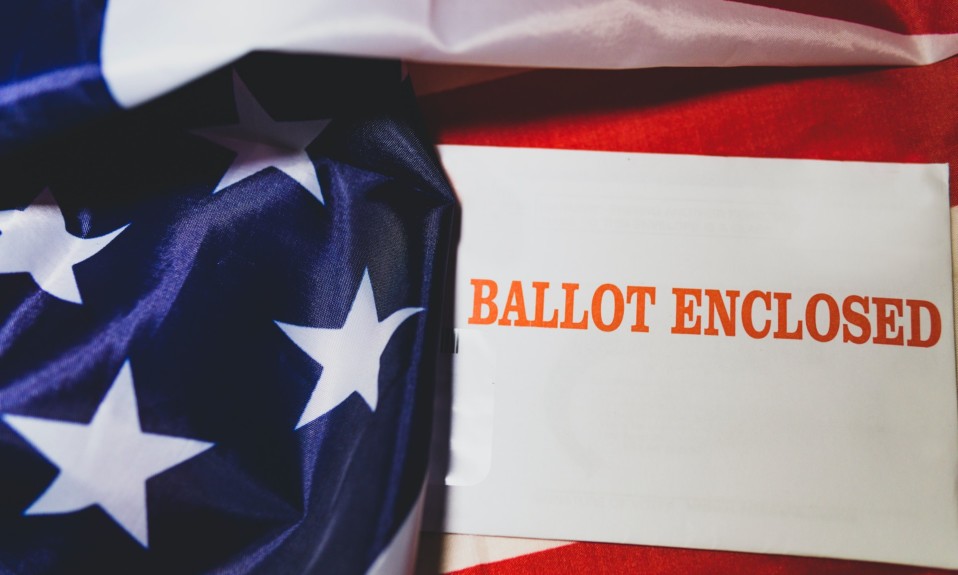The incumbent American president passed beneficial drug laws and drug sentencing policies, but he has yet to offer a viable replacement plan for ACA and has an ever-shifting approach to legalization, funding and other addiction issues
By Jason Langendorf
October 15, 2020In advance of Election Day, Nov. 3, TreatmentMagazine.com is spotlighting both presidential candidates’ approaches to drug policy, legislation and the most pressing addiction and treatment issues. We invite you to also read this article’s companion piece on former Vice President Joe Biden’s point of view and approach.

Their respective proposed policies are marked by differences, but the main distinction between the candidates is clear: existing legislation. Although Biden can point to strides made during the administration of President Barack Obama, under whom Biden served as vice president, he is unable to fully claim them as his own. Trump, on the other hand, has had four years in the driver’s seat to steer policy and bring legislation over the finish line.
In December 2018, Trump signed the FIRST STEP Act into law. Another bipartisan bill that had been years in the making, it marked the first major reduction to federal drug sentences since the nation’s protracted (and failed) War on Drugs began.”
Below is an overview of the addiction and treatment policy gains made during Trump’s first term, as well as what we can expect from his administration in this space over another four years, should he win a second term:
Opioid initiative: In March 2018, Trump’s Initiative to Stop Opioid Abuse, described by the White House as a first-of-its-kind program, was announced to “address factors fueling the opioid crisis, including over-prescription, illicit drug supplies and insufficient access to evidence-based treatment, primary prevention and recovery support services.”
Barring a viable replacement, repealing the ACA would leave tens of millions of Americans without access to health coverage, creating a pronounced rift between a vulnerable population and much-needed addiction treatment.”
Opioid legislation: In October 2018, the Substance Use Disorder Prevention that Promotes Opioid Recovery and Treatment (SUPPORT) for Patients and Communities Act was enacted. The legislation was passed with the intent to bolster the addiction medicine education of emergency and clinical response workers; standardize the delivery of medication; expand and improve care; and strengthen screening, data sharing and monitoring programs that discourage patient misuse and unsafe prescription practices by clinicians. Although the SUPPORT Act was a bipartisan bill, it was championed and signed into law by Trump, who during his administration has shown a commitment to marshalling funding for addiction prevention and treatment—specifically toward the opioid crisis.
Federal drug sentences: In December 2018, Trump signed the FIRST STEP Act into law. Another bipartisan bill that had been years in the making, it marked the first major reduction to federal drug sentences since the nation’s protracted (and failed) War on Drugs began. FIRST STEP helped reduce the prison population (which had been up more than 700% since 1980), ease the draconian “three strikes” rule and address prisoner conditions and certain racial inequities in the prison system.
Addiction treatment and data funding: In September 2019, the U.S. Department of Health and Human Services (HHS) announced more than $1.8 billion in funding for states to expand access to treatment and data support in the effort to address the opioid and drug overdose crisis. HHS secretary Alex Azar credited Trump for his leadership in securing the three-year cooperative agreement.
Attempts to repeal the Affordable Care Act: Trump’s relentless efforts to overturn the Affordable Care Act, which expanded healthcare coverage to include an estimated 24 million more Americans, have been an inescapable feature of his presidency. Although he has frequently touted a better, cheaper alternative to the ACA, dating back to his campaign of four years ago, Trump has never publicly presented a new plan. Barring a viable replacement, repealing the ACA would leave tens of millions of Americans without access to health coverage, creating a pronounced rift between a vulnerable population and much-needed addiction treatment.
A conflicting approach to legalization policy: Trump’s policy on criminalization of drug use is foggy. Years ago, he described himself as being “100%” in favor of marijuana legalization, and he even supported the legalization of all drugs, which he claimed would undercut the street market, create new tax revenues and expand government funding for addiction education and treatment.
More recently, in 2018, Trump said he “probably” would support states’ rights on marijuana legalization, then reiterated that stance in 2019. In addition to signing the FIRST STEP Act, Trump has commuted more than 10 sentences of convicted drug offenders and pardoned the life sentence of Alice Johnson, who spoke at the Republican National Convention in September, for her role in a cocaine trafficking operation.
But Trump has also frequently touted a law-and-order agenda, and in the first presidential debate, in September, he pointedly attacked Biden on that front. Also: It was Trump who appointed notorious hardliner Jeff Sessions as U.S. Attorney General in 2017, around the same time his conversation with Philippines President Rodrigo Duterte praising the de facto dictator’s bloody, no-holds-barred assault on the drug trade was leaked. As recently as February, Trump praised China and Singapore for their use of the death penalty in drug control policy.
It’s difficult to speculate what another four years under a Donald Trump administration might hold for U.S. drug policy and addiction prevention and treatment.
On the one hand, Trump declared the opioid crisis a national emergency in 2017 and then took action by signing into law landmark legislation and funding. On the other, his administration has taken a dubious approach to staffing the White House Office of National Drug Control Policy; allowed the national emergency declaration on opioids to lapse after two years, reportedly due to a “clerical error”; and has watched overdose deaths spike again after a brief, misunderstood dip.
Moreover, Trump’s attack on the addiction history of Biden’s son during the presidential debate, his xenophobically loaded characterizations of the drug trade and his fast-and-loose public approach to COVID-19 treatments bring into question his seriousness on the subject.
Although certain undeniable strides have been made under the Trump administration, the president himself has typically used drug policy as a political cudgel rather than outlining his administration’s future plans or rallying public support for continued funding and legislation.
In advance of Election Day, Nov. 3, TreatmentMagazine.com is spotlighting both presidential candidates’ approaches to drug policy, legislation and the most pressing addiction and treatment issues. We invite you to also read this article’s companion piece on former Vice President Joe Biden’s point of view and approach.
Photo: Shealah Craighead













